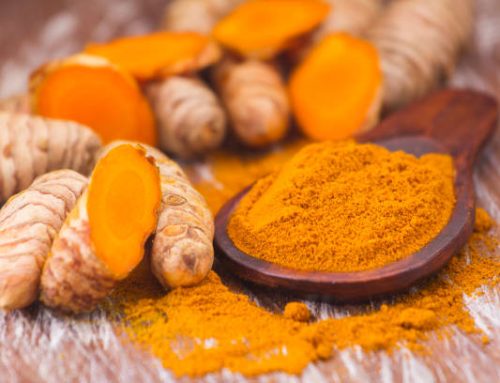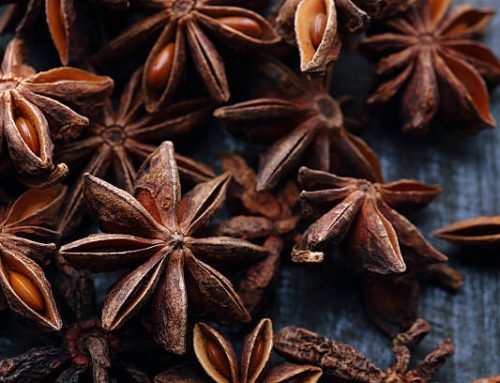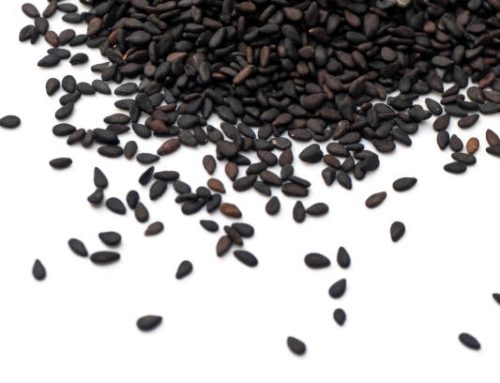Cumin, the fragrant spice that graces the kitchens of millions worldwide, is not only famous for its distinctive flavor but also for its therapeutic potency. From ancient civilizations to modern science, cumin’s powerful properties have been recognized and harnessed for the benefit of health and well-being. In recent years, the focus has shifted to its extract, a novel form that is claimed to possess even more potent properties than the spice itself. Join us on a scientific journey as we unlock the secrets of cumin’s extract and explore its impressive health benefits.

1. Introduction: Cumin – The Magical Spice
Cumin, or Cuminum cyminum, is a spice that has been used for hundreds of years in various cultures for its distinctive flavor and medicinal properties. This spice belongs to the family Apiaceae, and it is native to the eastern Mediterranean region and parts of Asia. In this article, we will explore some of the magical properties of cumin, including its health benefits and culinary uses.
Cumin seeds have a rich, earthy flavor and a warm aroma. They are used in a variety of cuisines, such as Indian, Middle Eastern, and Mexican. Cumin can be used either as whole seeds or ground into a fine powder, and it is a key ingredient in many spice blends, such as garam masala and curry powder.
Apart from its culinary uses, cumin is also known for its potential health benefits. It is rich in antioxidants and is known to have anti-inflammatory and antimicrobial properties. Cumin has been used traditionally to aid digestion and alleviate gastrointestinal problems such as bloating, flatulence, and constipation.
Research has also shown that cumin may have blood sugar-lowering effects, making it a promising natural remedy for diabetes. Moreover, cumin has been found to have cholesterol-lowering effects, which may reduce the risk of cardiovascular disease.
In addition to its medicinal properties, cumin is also used in the cosmetic industry. It is believed to have antimicrobial and anti-inflammatory effects on the skin, making it useful in the treatment of acne and other skin conditions.
Overall, cumin is a magical spice that not only adds flavor to dishes but also has potential health benefits. In the next sections, we will delve deeper into the scientific evidence behind the health benefits of cumin and its various culinary uses. So, let’s get started!
2. The Bioactive Compounds: Unraveling the Mystery of Cumin’s Extract
There are well over 100 bioactive compounds found within cumin seeds that contribute to its flavor, aroma, and health benefits. Among the major groups of phytochemicals are terpenes, phenolic compounds, and alkyl hydroxy benzoate derivatives. Here, we will take a closer look at a few of the most interesting compounds and their potential health benefits.
1. Cuminaldehyde
This is the most abundant and potent volatile oil in cumin. It is responsible for the warm, spicy aroma and flavor of cumin. However, studies have shown that cuminaldehyde also possesses potent antioxidant and anti-inflammatory properties. This compound has been linked to the prevention of cardiovascular diseases, cancer, and neurological disorders.
2. Thymoquinone
This is a unique bioactive constituent found in black cumin, which is known for its potent antimicrobial, anti-inflammatory, and antioxidant properties. Thymoquinone has been studied for its use in treating various diseases, including liver disease, diabetes, cancer, and respiratory disorders.
3. Phytosterols
These are cholesterol-like compounds found in all plants. In cumin seeds, phytosterols such as β-sitosterol, stigmasterol, and campesterol are present. These compounds have been shown to help lower cholesterol levels, improve heart health, and enhance immune function.
4. Cuminal
This is a hydroxy benzoate derivative responsible for the yellowish color of cumin seeds. It has powerful antimicrobial and antifungal properties and has been shown to help prevent food spoilage caused by bacteria and mold.
5. Apigenin
This is a flavonoid that has been shown to exhibit anti-inflammatory, antioxidant, and anti-cancer properties. It is found in many herbs and vegetables, including cumin. Recent studies suggest that apigenin may help prevent and treat a variety of diseases, including diabetes, Alzheimer’s disease, and heart disease.
In conclusion, cumin seeds are loaded with bioactive compounds that have potent health benefits. These compounds are responsible for the unique aroma and flavor of cumin, which has been used in traditional medicine for centuries. Whether consumed whole or in the form of an extract, cumin is a potent natural remedy for a variety of ailments.
3. Health Benefits: A Comprehensive Overview of Cumin’s Therapeutic Properties
Cumin has been used in traditional medicine for centuries due to its various therapeutic properties. It is rich in essential nutrients and bioactive compounds that are responsible for its health benefits. Below is a list of the health benefits of cumin:
- Rich in Antioxidants: Cumin is a rich source of antioxidants, such as flavonoids, phenolic acids, and carotenoids. These antioxidants protect the body from damage caused by free radicals, reducing the risk of chronic diseases such as cancer, diabetes, and heart disease.
- Anti-inflammatory Properties: Cumin contains anti-inflammatory compounds like thymoquinone and cuminaldehyde that reduce inflammation and pain caused by arthritis and other inflammatory conditions. It also improves digestion by reducing inflammation in the gut.
- Improves Digestion: Cumin is known to stimulate the production of digestive enzymes that help in the breakdown of food. It also reduces bloating, gas, and constipation.
- Regulates Blood Sugar: Cumin has been found to improve insulin sensitivity and lower blood sugar levels, making it beneficial for people with diabetes.
- Boosts Immunity: The nutrients and antioxidants in cumin help to strengthen the immune system and protect the body from bacteria and viruses.
- Reduces Cholesterol: Cumin contains phytosterols that reduce the absorption of cholesterol in the body, thereby reducing the risk of heart disease.
Cumin is a versatile spice that can be easily incorporated into your diet. You can add it to soups, stews, curries, and even sprinkle it on roasted vegetables. It can also be brewed as a tea, which makes it a convenient way to reap its health benefits. If you’re looking to improve your overall health and wellbeing, it’s worth considering adding cumin to your diet.
4. Promising Applications: Emerging Trends in Cumin-Based Alternative Medicine
Cumin, a spice commonly found in many cuisines worldwide, has been known for its medicinal properties for centuries. In traditional Indian and Chinese medicine, cumin has been used to treat various ailments such as digestive disorders, respiratory problems, and menstrual cramps. Today, emerging research is providing evidence for cumin’s potential health benefits, which may lead to innovative cumin-based alternative medicine.
Breast Cancer Prevention:
Studies have suggested that cumin may help prevent breast cancer due to its high levels of antioxidants and anti-inflammatory properties. Cumin‘s active compounds, such as thymoquinone, have been shown to reduce tumor growth and inhibit cancer cell growth in vitro.
Diabetes Management:
Cumin may help manage diabetes by promoting insulin sensitivity and reducing blood glucose levels. Research has shown that cumin seed extracts can significantly decrease blood sugar levels in patients with type 2 diabetes.
Immune System Boost:
Cumin‘s antioxidant and anti-inflammatory properties may enhance the body’s immune response by reducing oxidative stress and inflammation. Thus, regular consumption of cumin may improve the body’s ability to fight infections and diseases.
Mental Health:
Cumin‘s active compounds, such as thymoquinone, may have a positive impact on mental health by reducing anxiety and depression. A study indicated that thymoquinone effectively reduced anxiety in mice by regulating neurotransmitter levels in the brain.
Digestive Health:
Cumin may help promote healthy digestion due to its high fiber content and digestive enzymes. Studies have also shown that cumin may help reduce symptoms of irritable bowel syndrome (IBS), including bloating, gas, and constipation.
In conclusion, cumin has been used for centuries as a traditional medicine, and emerging research is providing scientific evidence supporting its numerous health benefits. Cumin-based alternative medicine has the potential to be a safe, effective, and accessible treatment option for various health conditions. However, it is crucial to consult with a healthcare professional before incorporating cumin-based alternative medicine into a treatment plan to ensure its safety and efficacy.
5. Future Prospects: Harnessing Cumin’s Potent Powers for Human Well-being
Cumin, the aromatic spice known for its earthy and warm flavor, has been used for centuries as a culinary and medicinal ingredient. Its potent and wide-ranging health benefits make it a popular ingredient in many traditional remedies, and as modern medicine continues to explore the properties of this powerful spice, its potential for human well-being continues to expand.
Antioxidant Properties
Cumin is a rich source of powerful antioxidants, which help to neutralize harmful free radicals in the body that can cause damage to cells and tissues. Studies have shown that cumin’s antioxidant properties may help to prevent the development of chronic diseases such as cancer, diabetes, and heart disease.
Anti-inflammatory Effects
Cumin also contains active compounds that have anti-inflammatory effects, which can help to reduce inflammation in the body and relieve symptoms associated with conditions such as arthritis, asthma, and allergies. It may also play a role in the prevention and treatment of chronic inflammatory diseases.
Digestive Benefits
In traditional medicine, cumin has long been used to promote digestion and relieve gastrointestinal symptoms such as bloating, gas, and indigestion. Recent research has confirmed these benefits, showing that cumin may help to stimulate the production of digestive enzymes, reduce inflammation in the gut, and promote the growth of beneficial gut bacteria.
Potential Uses in Modern Medicine
As the health benefits of cumin become better understood, there is growing interest in its potential uses in modern medicine. Some studies have suggested that cumin may have antimicrobial and antifungal properties, which could make it useful in the treatment of infections. It may also have potential as an anti-cancer agent, and could be used to develop new therapies for cancer treatment.
Overall, the future prospects for harnessing cumin’s potent powers for human well-being are bright. Whether as a culinary ingredient or a medicinal herb, cumin offers a range of health benefits that make it a valuable addition to any healthy lifestyle. As research into cumin’s properties continues, we can expect to see new applications for this powerful spice emerge in the years ahead.
As we conclude our investigation into cumin’s potent powers and unlocking the secrets of its extract, it is evident that cumin extract holds great potential in various industries, especially in health and wellness. The scientific evidence we explored suggests that cumin extract could offer a range of benefits from improving digestion to reducing inflammation, to name a few. With more research, we could potentially discover even more of cumin’s secrets waiting to be unlocked.
FAQ:
Q: What is cumin extract?
A: Cumin extract is a concentrated form of cumin that is created by extracting the active compounds responsible for its health benefits.
Q: How is cumin extract used?
A: Cumin extract is used in various ways, including as a spice in food preparation, as a supplement in pill form, or in topical creams and ointments.
Q: What are the benefits of cumin extract?
A: Some of the benefits of cumin extract include improved digestion, reduced inflammation, increased immune function, and improved blood sugar control.
Q: Is cumin extract safe to use?
A: When used in recommended amounts, cumin extract is generally safe for consumption. However, it is always a good idea to consult with a qualified healthcare practitioner before starting any new supplement regimen.
Q: Are there any side effects of cumin extract?
A: Some people may experience mild side effects, such as digestive discomfort, when using cumin extract. However, these side effects are typically minor and should resolve on their own.




